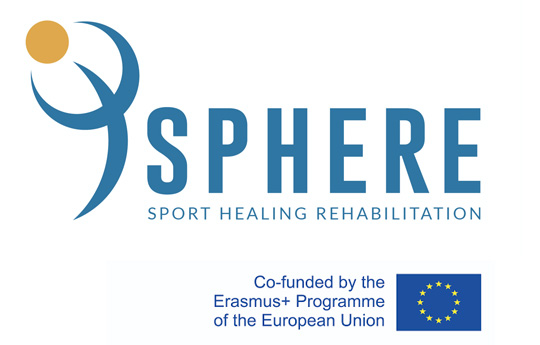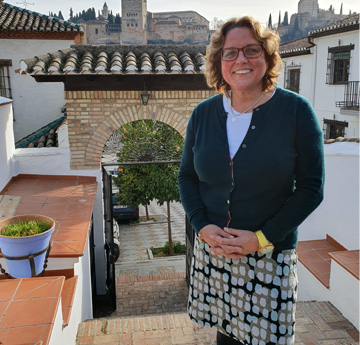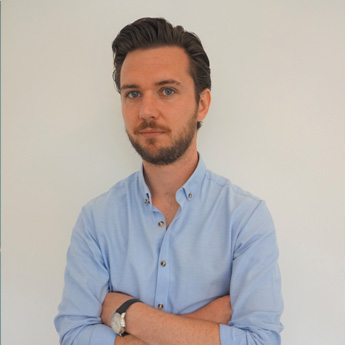What is SPHERE?
In response to this, an Erasmus+ funded research project; SPHERE (Sport Healing Rehabilitation), has been developed to establish a series of user-friendly guidelines for both potential leaders of these activities and for the professionals who support the treatment of people with mental health problems. The guidelines provide practical information on how to design and lead successful physical activity sessions which benefit participants’ mental health.
The SPHERE project brings together expertise from across Europe, from Italy, Finland, Croatia, England, Wales, Germany and Belgium, presented by representatives from academia, psychiatric services, local authority sports development and third sector physical activity providers. Wales are represented by Professor Diane Crone and Paul Sellars from Cardiff Metropolitan University. Professor Crone leads the projects Scientific Committee, and explains one of the main benefits of the programme:
“SPHERE is unique in that it has brought together a range of professionals from psychiatry, academia, and sport and physical activity development. It has created a multidisciplinary partnership to address one shared problem – to increase sport and physical activity opportunities for people with mental health problems. For a long time now we have needed to breach the gap between academic, clinical and sport practice – this project has done that, and through the successful collaboration, it has created, we hope, practical useful guidelines for people to use in the promotion of physical activity for mental health.”
Initially, the team used scientific literature, best practice examples of physical activity interventions for those with mental health problems, and a newly developed survey to produce a set of 17 guidelines on how to harness the benefits of sport and physical activity in supporting individuals’ mental health.
The guidelines were tested over four different sites, before accompanying case studies were developed and practitioners provided feedback via an online survey and interviews. This information was used to form the final set of SPHERE guidelines, which encompass a number of aspects, including:
- Logistics (e.g., Sessions ideally take place at least three times per week)
- Environment (e.g., The programme should ideally seek to incorporate activities in the open air and natural environments)
- Practitioner role (e.g., Participants’ learning, development progression and personal experience are reviewed through regular discussion feedback)
- Participant needs (e.g., Programme attendance and involvement is flexible to accommodate for participants’ individual current circumstances)
Using a combination of scientific evidence and practical experience, the guidelines are particularly useful because they have been designed with people working in applied sport, physical activity and mental health settings at the heart of the process. As a result, they are adaptable to different contexts, are easy to follow and have been designed as helpful for patients with a diverse range of diagnoses.
Paul mentioned: “This project has provided a great opportunity for me to work closely with different colleagues from around Europe gaining insights and knowledge from academics and applied practitioners from a variety of mental health settings and organisations. Apart from the obvious benefits of developing relationships and experiencing different cultures and working practices, a key take away from the project has been the further justification for the need for co-created research, with particular input from the end users. This sense of ‘co-creation’ during the research process has been vital in tailoring the guidelines to be relevant and practical for mental health practitioners, and has challenged me to reflect upon the applied implications and outputs to enhance impact and future use of the SPHERE Guidelines.”
Health and Wellbeing Manager Johnnie Garside, from SPHERE project partner Everton in the Community, said: “It has been a great honour for EitC to be involved in the SPHERE project working alongside so many esteemed organisations from across Europe. We hope the findings from the project can go a long way in helping validate the therapeutic impact of physical activity on mental wellbeing”. Available here.
The value of physical activity in improving mental health is clear. By providing a series of evidence-based and practical recommendations on how to design and run physical activity programmes for mental wellbeing, the SPHERE project aims to influence the physical activity opportunities available for people with mental health problems across Europe. Providing the SPHERE practical guidelines helps make the divide between research and practice smaller, and makes evidence based practice more accessible for busy professionals working in sport and mental health.
SPHERE has also developed case study examples where the guidelines have been used to develop sport and physical activity programmes for people with mental health problems, and examples of best practice from across Europe. The aim of providing these is to demonstrate the range of activities that can be used and to help to spark ideas for people wanting to develop their own programmes in this area. For all future and currently available SPHERE documents please click here.
Project partners:
- European Culture and Sport Organization (Italy; Lead organisation)
- European Platform for Sport Innovation (Belgium)
- Everton in the Community (UK)
- Finnish Sport Federation Tampere Region (Finland)
- Rijeka Sports Association for Persons with Disabilities (Croatia)
- Cardiff Metropolitan University (UK)
- Technical University of Munich (Germany)



